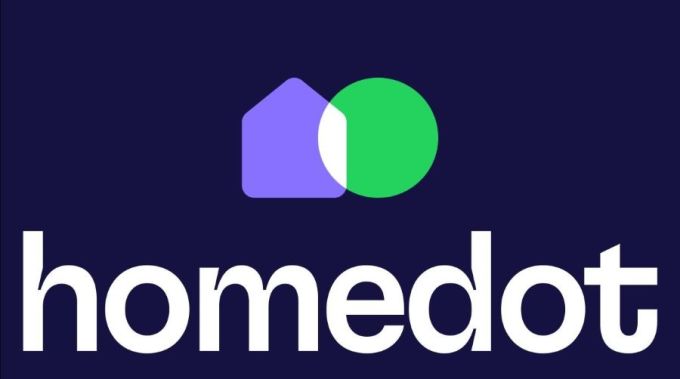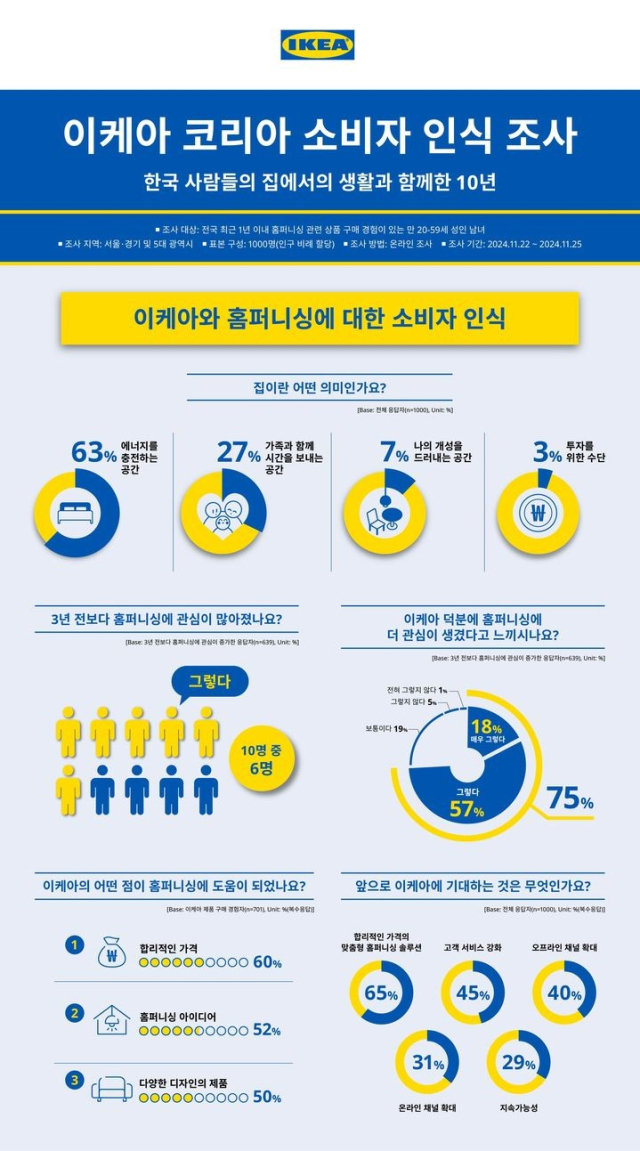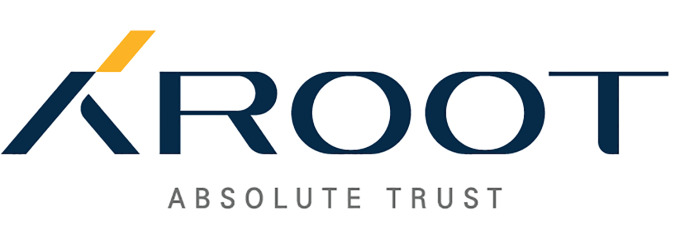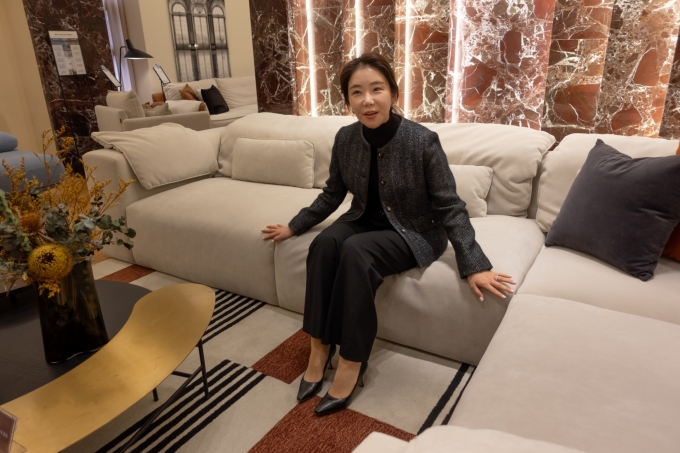– 제주를 넘어 전국 고급 호텔의 침구류 재생 순환 시스템 구축
– 폐기물 수거부터 재생 제품 생산까지 전 과정 이력 관리 시스템 내년 론칭
– “우리의 최종 목표는 섬유 소재 은행을 만드는 것”
고급 호텔의 침구류는 대부분 한 두번을 사용하더라도 작은 얼룩이나 하자가 있다면 폐기 처분한다. 세탁과 수선에 더 많은 시간과 비용이 소요되기 때문이다. 호텔 리브랜딩이나 리모델링으로 전체 침구류를 교체하는 경우도 많다. 이렇게 버려지는 고급 침구류에 새로운 가치를 더하는 스타트업이 있다. 바로 섬유 재생 순환자원 기업 ‘제클린’이다.
SK플래닛 등에서 20여 년간 IT 서비스를 개발해온 차승수 대표는 2010년대 중반, 에어비앤비 같은 공유숙박 시장이 성장하면서 소형 숙박업소의 세탁 수요가 급증하는 현상에 주목했다. 특히 관광지인 제주에서 이러한 현상이 두드러졌다. 에어비앤비는 예약 시스템은 잘 갖춰져 있었지만 세탁 시스템에는 한계가 있었고, 중소형 숙박업소들은 대형 호텔과 달리 전문 세탁 서비스 없이 비체계적으로 운영되고 있었다. 이러한 시장의 틈새를 발견한 차 대표는 2017년 제클린을 창업했다.
■ 호텔 침구류의 가치를 발견하다

호텔 침구류는 고급스러운 객실 환경 유지를 위해 사용 주기가 짧다. 그만큼 자원 소비가 크다. 국내 숙박업소의 침구류 폐기물이 연간 3천 톤 이상이라는 게 제클린 측의 설명이다.
제클린이 호텔 침구류에 주목한 데는 특별한 이유가 있다. 호텔 침구류는 대부분 100% 면 제품이며, 흰색으로 통일되어 있어 균일한 품질의 고급 재생 원료를 확보하기에 용이하다. 순면은 r-PET 등 합성섬유와 달리 미세플라스틱 발생이 없어 환경친화적 재생이 가능하다. 또한 합성섬유 제품과 달리 분리 선별 작업이 불필요해 재활용 공정이 단순하다는 장점이 있다.
차 대표는 “대부분의 섬유제품에는 폴리에스테르가 포함되어 있어 세탁 시 미세플라스틱이 발생합니다. 일반 의류의 경우 소재와 색상, 디자인이 각기 달라 SKU 구분이 복잡하지만, 호텔 침구류는 규격, 색상, 디자인이 거의 동일해 SKU가 단순합니다. 그만큼 재활용 과정이 효율적이죠”라며 호텔 침구류 재활용의 장점을 설명했다.
■ 재활용을 넘어 ‘업사이클링’으로
제클린은 체계적인 공정을 통해 호텔 침구류를 최대한 재활용하고, 불가피한 경우에만 폐기하는 자원 순환 시스템을 운영하고 있다.
제클린은 호텔에서 순면 제품을 밀폐형 전용 차량으로 수거해 1차 시설에 보관한다. 이후 친환경 세제로 세탁하고 침구류를 종류별로 분류하며, 순면과 혼방 제품을 선별한다. 선별된 제품은 봉제실과 라벨 등을 제거하고 적정 크기로 절단한 후, 특수 파쇄기로 스테이플(솜) 형태로 가공한다. 이렇게 만들어진 재생 면화는 새 면화와 적정한 비율로 혼합되어 방적 공정을 거치며, 이를 통해 재생사와 새로운 원단, 제품이 생산된다. 전 과정에서 품질 관리는 엄격하게 이루어지며, 면 100% 순도와 35mm의 스테이플 길이를 유지한다.
차 대표는 “면 제품을 수거한 뒤 세척과 분류 과정을 거쳐 파쇄합니다. 섬유의 순도를 높이기 위해서는 파쇄 과정이 가장 중요합니다. 순도가 낮으면 염색과 가공 과정에서 문제가 발생하기 때문입니다. 이렇게 만든 면섬유는 새 면화와 블렌딩해 실을 만들고, 이 실로 다시 새로운 섬유 제품을 생산합니다. 특히 재생 면화의 길이를 35mm 수준으로 유지하는 기술을 개발해 고품질 재생 섬유 생산이 가능해졌습니다”라고 제클린의 섬유 재생 순환 과정을 설명했다.
제클린은 GRS(Global Recycled Standard) 인증을 획득하여 재생 제품의 품질을 높였다. GRS는 20% 이상의 재활용 원료를 함유한 제품에만 부여되는 국제 인증이다.
재생 섬유는 다양한 형태로 활용된다. 재생 원사는 방직 회사에 공급되어 의류나 침구류와 같은 다양한 섬유 제품의 원료로 사용된다. ‘RE;TOWEL’과 ‘RE;SOM’ 같은 재생 타월과 침구류로 재탄생하여 호텔에 공급하고 있으며, 기업의 유니폼과 작업복으로도 제작되기도 있다. 또한 재생 면사로 원단을 생산하여 의류, 패션 업체에 공급하고 있으며, 다양한 친환경 제품으로도 활용되고 있다.
제클린은 침구류 수거 및 재활용뿐만 아니라 B2B 세탁 케어 시스템(SaaS), 침구 공급을 아우르는 3-in-1 통합 서비스를 구축했다. B2B 세탁 케어 시스템으로 실시간 세탁물 관리, 입출고 현황 확인, 세탁 이력 추적 관리 등이 가능하다. 제클린은 세탁 전문 기업과의 협력을 통해 호텔에 서비스를 공급하고 있다. 또한 중소형 숙박업체 대상으로 침구를 공급하고 있다.
차 대표는 “제품의 전체 생애주기에 걸친 통합 서비스를 제공하고 있습니다. 호텔은 제클린을 통해 세탁, 침구류 구입, 재생, 폐기 서비스를 한 곳에서 해결할 수 있습니다”라고 제클린의 통합 서비스에 대해 설명했다.
■ 디지털 기술로 완성하는 순환경제
제클린은 폐기물 수거부터 재생 제품 생산까지 전 과정의 이력을 블록체인으로 관리하는 ‘Digital Product Passport(DPP)’를 내년 상반기 출시를 목표로 개발하고 있다.
DPP는 섬유 폐기물의 수거부터 재생 제품 생산까지 전 과정의 이력을 추적하고 관리하는 디지털 시스템이다. 모든 정보는 블록체인 기술을 통해 안전하게 보관되며, 소비자들은 제품의 QR 코드를 통해 재생 과정의 전체 이력을 확인할 수 있다.
차 대표는 “원료를 만든 시점부터 회수할 때까지의 모든 과정을 보여주고자 합니다. 재생 제품을 만들다 보면 재생 여부를 구분하기 어려운데, 소비자에게 투명하게 공개해야겠다는 생각이 들었습니다. 하나의 제품이 있다면 해당 제품의 원료부터 제조자까지 모든 정보를 담아내는 것입니다. DPP는 사람 중심의 이력 관리이며, 제품 하나를 만드는 데 많은 사람이 관여한다는 사실을 보여주고 싶습니다”라고 설명했다.
제클린은 DPP에 모든 제품에 사용 기간을 명시하고, 오래 사용할수록 보상 포인트가 증가하는 시스템을 도입했다. 이럴 경우 제품의 수명 주기를 혁신적으로 관리할 것으로 기대된다. 차 대표는 “생산자가 직접 관리하는 방식을 적용하고 있으며, 이는 생산자책임재활용제도(EPR)와도 연계될 수 있습니다. 최근 의류 재고의 폐기를 금지하고 재활용을 의무화하는 내용을 담은 법안이 발의되었는데 DPP를 통해 의류업체들도 EPR에 동참할 것으로 보입니다”라며 앞으로 다가올 제도 변화에 따른 DPP 대응 전략에 대해 설명했다.
■ 제주를 넘어 전국 호텔로 확장 성장 중

제클린은 제주도 주요 호텔 10곳과의 협력을 통해 사업 기반을 다져왔으며, 현재는 강원랜드 하이원과 파르나스호텔, 롯데, SK 등 전국 주요 호텔로 사업을 확장하고 있다. 생산 시설도 나주와 광주 지역으로 확대할 계획이며, 특히 나주 공장은 일신방직과 인접해 있어 물류 비용 절감이 기대된다.
“시장의 선도 주자로서 잘 해내야겠다고 생각합니다”
차 대표는 섬유 재생 순환자원 기업으로서의 책임감을 강조했다. 재생 원사의 품질이 떨어질 경우 재생 순환자원 생태계 전반에 영향을 미치기 때문이다. 이에 재생 제품을 기존 제품과 동일한 수준으로 생산하고 있으며, “앞으로도 지속가능한 섬유 재생 생태계를 만들어가는 것이 목표”라고 밝혔다.
차 대표는 “버려지는 섬유를 더 오래 쓰고 더 많이 재생할 수 있는 기술로 지구와 인간의 미래를 좋은 방향으로 바꾸고 싶다”는 포부를 전했다. 또한 “우리 아이들에게 더 나은 세상을 물려주고 싶습니다. 환경을 생각하는 이 일을 통해 미래 세대에 기여할 수 있다는 점에서 큰 자부심을 느낍니다”라고 말했다.
차 대표는 마지막으로 “우리의 최종 목표는 섬유 소재 은행을 만드는 것입니다. 코엑스만한 큰 공간을 재생 가능한 섬유들로 가득 채우고 싶습니다. 이렇게 되면 고객이 원하는 어떤 섬유든 바로 만들어낼 수 있습니다. 재생 섬유의 대규모 순환 시스템이 가능하다고 믿습니다”라고 미래의 비전을 밝혔다.
Finding eco-friendly business from hotel waste… Jacqueline’s textile regeneration circulation system
– Establishing a bedding recycling system for luxury hotels across the country, beyond Jeju
– A full process history management system from waste collection to recycled product production to be launched next year
-“Our ultimate goal is to create a textile material bank.”
Most bedding in luxury hotels is discarded after one or two uses. Even if there are small stains or defects, it is discarded immediately because it takes more time and money to wash and repair. When rebranding or remodeling a hotel, all bedding is replaced with new ones. There is a startup that adds new value to this discarded luxury bedding. It is a textile recycling resource company called 'Jeclean'.
CEO Cha Seung-soo, who has been developing IT services for over 20 years at SK Planet and others, noticed a rapid increase in demand for laundry services at small accommodations in the mid-2010s as the shared accommodation market such as Airbnb grew. This phenomenon was particularly noticeable in Jeju, a tourist destination. Airbnb had a well-established reservation system, but its laundry system was limited, and small and medium-sized accommodations were being operated unsystematically without professional laundry services, unlike large hotels. After discovering this gap in the market, CEO Cha founded Jacclean in 2017.
■ Discover the value of hotel bedding
Hotel bedding has a short life cycle to maintain a luxurious guest room environment. This means that it consumes a lot of resources. According to Jacqueline, domestic accommodations produce more than 3,000 tons of bedding waste annually.
There is a special reason why Jacqueline focused on hotel bedding. Most hotel bedding is made of 100% cotton and is unified in white, making it easy to secure high-quality recycled raw materials of consistent quality. Unlike synthetic fibers such as r-PET, pure cotton does not produce microplastics, making it environmentally friendly to recycle. In addition, unlike synthetic fiber products, it does not require separation and sorting, making the recycling process simple.
Representative Cha said, “Most textile products contain polyester, which creates microplastics when washed. In the case of general clothing, the material, color, and design are all different, making SKU distinction complicated, but hotel bedding has almost the same specifications, color, and design, so the SKU is simple. That makes the recycling process efficient,” explaining the advantages of recycling hotel bedding.
■ Beyond recycling to ‘upcycling’
Jacqueline operates a resource circulation system that recycles hotel bedding as much as possible through a systematic process and discards it only when unavoidable.
Jacqueline collects pure cotton products from hotels in sealed, dedicated vehicles and stores them in the primary facility. Afterwards, it washes them with eco-friendly detergents, sorts bedding by type, and selects pure cotton and blended products. The selected products are cut to an appropriate size after removing sewing thread and labels, and are then processed into staple (cotton) shapes with a special shredder. The regenerated cotton produced in this way is mixed with new cotton in an appropriate ratio and goes through a spinning process, producing regenerated yarn and new fabrics and products. Strict quality control is implemented throughout the entire process, and 100% cotton purity and a staple length of 35 mm are maintained.
Representative Cha said, “After collecting cotton products, they are washed, sorted, and shredded. The shredding process is the most important in increasing the purity of the fiber. If the purity is low, problems occur during the dyeing and processing processes. The cotton fibers made in this way are blended with new cotton to make yarn, and this yarn is used to produce new fiber products. In particular, we developed a technology to maintain the length of regenerated cotton at around 35mm, which made it possible to produce high-quality regenerated fibers,” explaining Jacqueline’s fiber regeneration cycle process.
Jacqueline has improved the quality of its recycled products by obtaining the Global Recycled Standard (GRS) certification. GRS is an international certification granted only to products containing more than 20% recycled materials.
Regenerated fibers are utilized in various forms. Regenerated yarns are supplied to textile companies and used as raw materials for various textile products such as clothing and bedding. They are reborn as regenerated towels and bedding such as 'RE;TOWEL' and 'RE;SOM' and supplied to hotels, and are also produced as corporate uniforms and work clothes. In addition, fabrics are produced from regenerated cotton yarns and supplied to clothing and fashion companies, and are also utilized in various eco-friendly products.
Jacqueline has established a 3-in-1 integrated service that encompasses not only bedding collection and recycling, but also a B2B laundry care system (SaaS) and bedding supply. The B2B laundry care system enables real-time laundry management, check of incoming and outgoing status, and laundry history tracking management. Jacqueline provides services to hotels through collaboration with laundry specialists. It also supplies bedding to small and medium-sized accommodations.
“We provide integrated services across the entire product life cycle. Hotels can take care of laundry, bedding purchase, recycling, and disposal services all in one place through Jacqueline,” said CEO Cha, explaining Jacqueline’s integrated services.
■ Circular economy completed with digital technology
Jecklin is developing a 'Digital Product Passport (DPP)' that manages the history of the entire process from waste collection to recycled product production using blockchain, with the goal of launching it in the first half of next year.
DPP is a digital system that tracks and manages the entire process from the collection of textile waste to the production of recycled products. All information is safely stored using blockchain technology, and consumers can check the entire history of the recycling process through the product’s QR code.
Representative Cha explained, “We want to show the entire process from the time the raw materials were made to the time they were collected. When making recycled products, it is difficult to tell whether they are recycled or not, so we thought we should disclose this transparently to consumers. If there is a product, it contains all the information from the raw materials to the manufacturer. DPP is a people-centered history management, and we want to show that many people are involved in making a single product.”
Jacqueline has introduced a system in which the period of use for all products is specified in the DPP and reward points increase the longer they are used. In this case, the product life cycle is expected to be managed innovatively. CEO Cha said, “We are applying a method in which producers directly manage, and this can also be linked to the Extended Producer Responsibility (EPR) system. Recently, a bill was proposed that prohibits the disposal of clothing inventory and mandates recycling, and it seems that clothing companies will also join EPR through the DPP,” explaining the DPP response strategy according to the upcoming changes in the system.
■ Expanding and growing beyond Jeju to include hotels nationwide
Jacqueline has established a business foundation through cooperation with 10 major hotels in Jeju Island, and is currently expanding its business to major hotels nationwide, including Kangwon Land High1, Parnas Hotel, Lotte, and SK. It also plans to expand its production facilities to the Naju and Gwangju areas, and in particular, the Naju factory is adjacent to Ilshin Spinning, so logistics costs are expected to be reduced.
“I think I have to do well as a leader in the market.”
CEO Cha emphasized the responsibility as a textile recycling resource company. If the quality of recycled yarn declines, it will affect the entire recycled resource ecosystem. Accordingly, they are producing recycled products at the same level as existing products, and said, “Our goal is to continue to create a sustainable textile recycling ecosystem.”
“I want to change the future of the Earth and humanity in a positive direction with technology that can use discarded fibers for a longer period of time and recycle more,” said CEO Cha. “I want to leave a better world for our children. I feel a great sense of pride in being able to contribute to future generations through this environmentally conscious work.”
Finally, CEO Cha said, “Our ultimate goal is to create a textile material bank. We want to fill a large space like COEX with regenerative fibers. Then, we can immediately produce any fiber that customers want. We believe that a large-scale circulation system for regenerative fibers is possible,” revealing his vision for the future.
ホテル廃棄物で環境にやさしいビジネスを探す…ゼクリンが作る繊維再生循環システム
– 済州を越えて全国高級ホテルの寝具類再生循環システム構築
– 廃棄物の収集から再生製品の生産まで、全コース履歴管理システム来年ローンチ
– 「私たちの最終目標は繊維素材銀行を作ること」
高級ホテルの寝具類は、ほとんど1〜2回使用後に廃棄されます。小さな汚れや瑕疵だけでも、すぐに廃棄処分するのは、洗濯や修理にもっと時間と費用がかかるからだ。ホテルのリブランディングやリモデリングをする場合は、全寝具類を新しいものに交換する。このように捨てられる高級寝具類に新しい価値を加えるスタートアップがある。まさに繊維再生循環資源企業「ゼクリン」だ。
SKプラネットなどで20年余りITサービスを開発してきたチャ・スンス代表は、2010年代半ば、エアーB&Bなどの共有宿泊市場が成長し、小型宿泊施設の洗濯需要が急増する現象に注目した。特に観光地である済州でこのような現象が目立った。 Airbnbは予約システムはよく装備されていましたが、ランドリーシステムには限界があり、中小型の宿泊施設は大型ホテルとは異なり、専門のランドリーサービスなしで非体系的に運営されていました。こうした市場の隙間を発見した車代表は、2017年にゼクリンを創業した。
■ホテル寝具類の価値を発見する
ホテルの寝具類は豪華な客室環境を維持するために使用周期が短い。それだけ資源消費が大きい。国内宿泊業者の寝具類廃棄物が年間3千トン以上というのがジェクリン側の説明だ。
ジェクリンがホテルの寝具に注目したのには特別な理由がある。ホテルの寝具類はほとんど100%綿製品であり、白で統一されており、均一な品質の高級再生原料を確保しやすい。正面はr-PETなどの合成繊維とは異なり、微細プラスチックの発生がなく、環境に優しい再生が可能です。また、合成繊維製品と異なり、分離選別作業が不要でリサイクル工程が単純であるという利点がある。
茶の代表は、「ほとんどの繊維製品にはポリエステルが含まれており、洗濯時に微細プラスチックが発生します。通常の衣類の場合、素材と色、デザインがそれぞれ異なり、SKUの区分が複雑ですが、ホテルの寝具類は規格、色、デザインがほぼ同じでSKUがシンプルです。それだけリサイクル過程が効率的です」とホテル寝具類リサイクルの利点を説明した。
■リサイクルを超えて「アップサイクリング」へ
ジェクリンは、体系的なプロセスを通じてホテルの寝具を最大限にリサイクルし、避けられない場合にのみ廃棄する資源循環システムを運営しています。
ジェクリンはホテルで純綿製品を密閉型専用車両として収集し、一次施設に保管する。その後、環境にやさしい洗剤で洗濯し、寝具類を種類別に分類し、正面と混紡製品を選別する。選別された製品は縫製室やラベルなどを除去して適正サイズに切断した後、特殊破砕機でステープル(綿)の形態に加工する。このように作られた再生綿は新しい綿と適正な割合で混合され、紡績工程を経て、これにより再生糸と新しい生地、製品が生産される。全過程で品質管理は厳密に行われ、綿100%純度と35mmのステープル長さを維持する。
茶代表は「綿製品を回収した後、洗浄と分類過程を経て破砕します。繊維の純度を高めるためには、破砕プロセスが最も重要です。純度が低いと、染色や加工の過程で問題が発生するためです。こうして作られた綿繊維は新しい綿とブレンドして糸を作り、この糸で再び新しい繊維製品を生産します。特に再生綿の長さを35mmレベルに保つ技術を開発し、高品質の再生繊維生産が可能になりました」とジェクリンの繊維再生循環過程を説明した。
ジェクリンはGRS(Global Recycled Standard)認証を取得し、再生製品の品質を高めた。 GRSは、20%以上のリサイクル原料を含む製品にのみ付与される国際認証です。
再生繊維は様々な形態で利用される。再生糸は織物会社に供給され、衣類や寝具類など様々な繊維製品の原料として使用される。 'RE;TOWEL'や'RE;SOM'のような再生タオルと寝具類で再誕生してホテルに供給しており、企業の制服や作業服でも製作されることもある。また、再生綿糸で生地を生産して衣類、ファッションメーカーに供給しており、様々な環境にやさしい製品としても活用されている。
ジェクリンは、寝具の収集とリサイクルだけでなく、B2Bランドリーケアシステム(SaaS)、寝具の供給をカバーする3-in-1統合サービスを構築しました。 B2Bランドリーケアシステムにより、リアルタイムのランドリー管理、入出庫状況の確認、ランドリー履歴追跡管理などが可能です。ジェクリンはランドリー専門企業との協力を通じてホテルにサービスを提供している。また、中小型宿泊会社向けに寝具を供給している。
チャ代表は「製品の全体のライフサイクルにわたる統合サービスを提供しています。ホテルは、ゼクリンを通じて洗濯、寝具類の購入、再生、廃棄サービスを一箇所で解決できます」とジェクリンの統合サービスについて説明した。
■デジタル技術で完成する循環経済
ジェクリンは、廃棄物の収集から再生製品の生産まで、全過程の履歴をブロックチェーンで管理する「Digital Product Passport(DPP)」を来年上半期の発売を目指して開発している。
DPPは、繊維廃棄物の収集から再生製品の生産まで、全プロセスの履歴を追跡して管理するデジタルシステムです。すべての情報はブロックチェーン技術によって安全に保管され、消費者は製品のQRコードを介して再生プロセスの全体的な履歴を確認できます。
チャ代表は「原料を作った時点から回収するまでのすべての過程を見せたいと思います。再生製品を作ってみると再生するかどうかは区別しにくいのですが、消費者に透明に公開しなければならないと思いました。 1つの製品がある場合は、その製品の原料から製造者まで、すべての情報を含めることです。 DPPは人中心の履歴管理であり、製品を一つ作るのに多くの人が関わっているという事実を見せたいと思います」と説明した。
ジェクリンはDPPにすべての製品に使用期間を指定し、長く使用するほど報酬ポイントが増加するシステムを導入した。この場合、製品の寿命周期を革新的に管理することが期待される。チャ代表は「生産者が直接管理する方法を適用しており、これは生産者責任リサイクル制度(EPR)とも連携できます。最近、衣類在庫の廃棄を禁止し、リサイクルを義務化する内容を盛り込んだ法案が発議されたが、DPPを通じて衣料業者もEPRに参加するものと思われる」とし、今後の制度変化によるDPP対応戦略について説明した。
■済州を越えて全国ホテルに拡大成長中
ジェクリンは済州島主要ホテル10カ所との協力を通じて事業基盤を築いてきており、現在は江原ランドハイワンとファルナスホテル、ロッテ、SKなど全国主要ホテルに事業を拡大している。生産施設もナジュと光州地域に拡大する計画であり、特にナジュ工場は一新紡織に隣接しており、物流コストの削減が期待される。
「市場の先導ランナーとしてよくやらなければならないと思います」
チャ代表は繊維再生循環資源企業としての責任感を強調した。再生糸の品質が劣る場合、再生循環資源生態系全般に影響を及ぼすためだ。これに再生製品を既存製品と同じレベルで生産しており、「今後も持続可能な繊維再生エコシステムを作っていくことが目標」と明らかにした。
チャ代表は「捨てられる繊維をより長く使い、より多く再生できる技術で地球と人間の未来を良い方向に変えたい」という抱負を伝えた。また、「私たちの子供たちに、より良い世界を譲りたいと思います。環境を考えるこの仕事を通じて、未来世代に貢献できるという点で大きな誇りを感じます」と話した。
「私たちの最終目標は、繊維素材の銀行を作ることです。 COEXのような大きな空間を再生可能な繊維でいっぱいに満たしたいと思います。これにより、顧客が望む任意の繊維をすぐに作り出すことができます。 「再生繊維の大規模循環システムが可能だと信じています」と、将来のビジョンを明らかにした。






![[이상직 변호사의 창의와 혁신] 〈49〉창의력 훈련 (상)](https://img.etnews.com/news/article/2024/12/13/news-p.v1.20241213.120cba3701f84ffaaec1921a53423257_P1.jpg)

